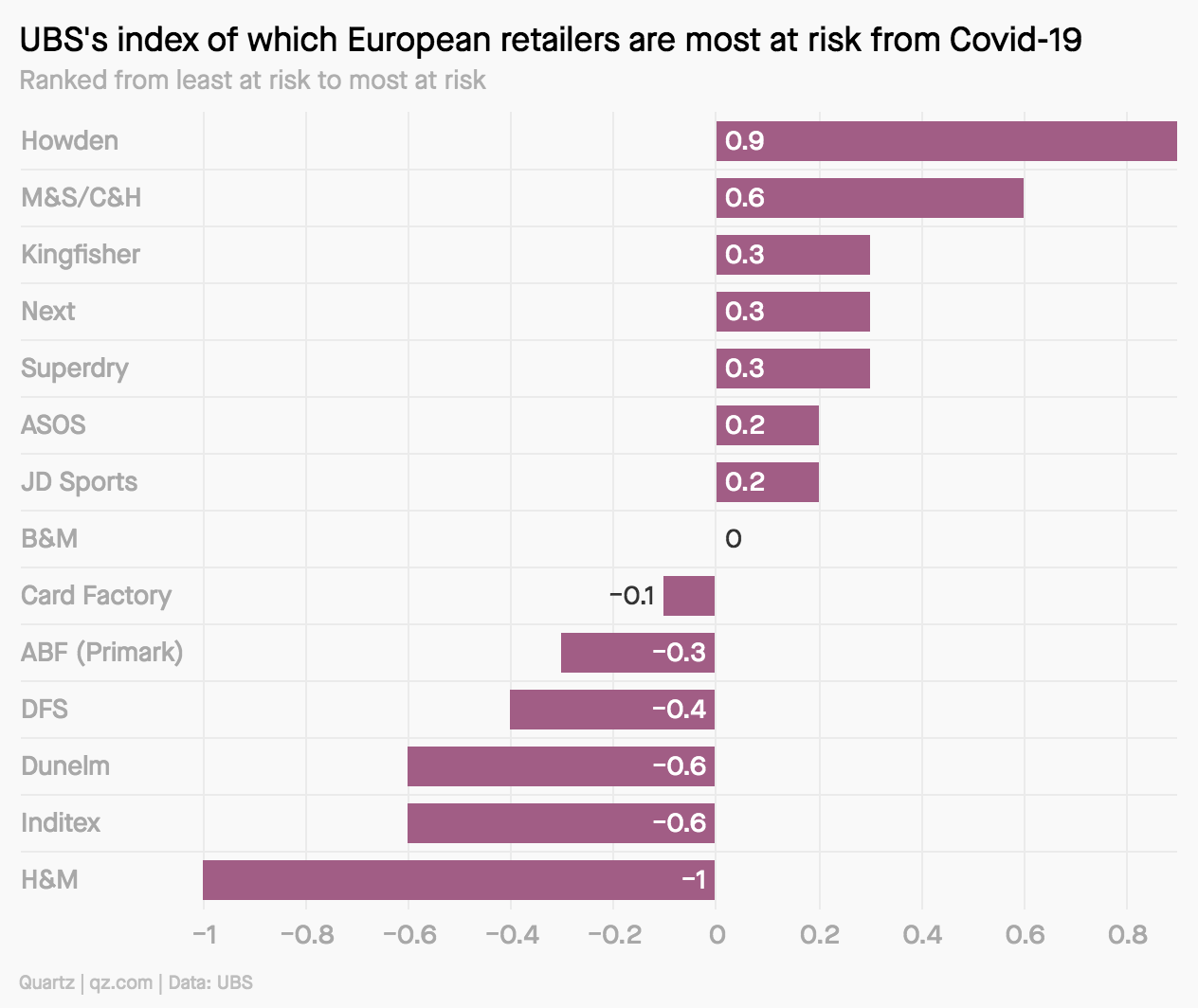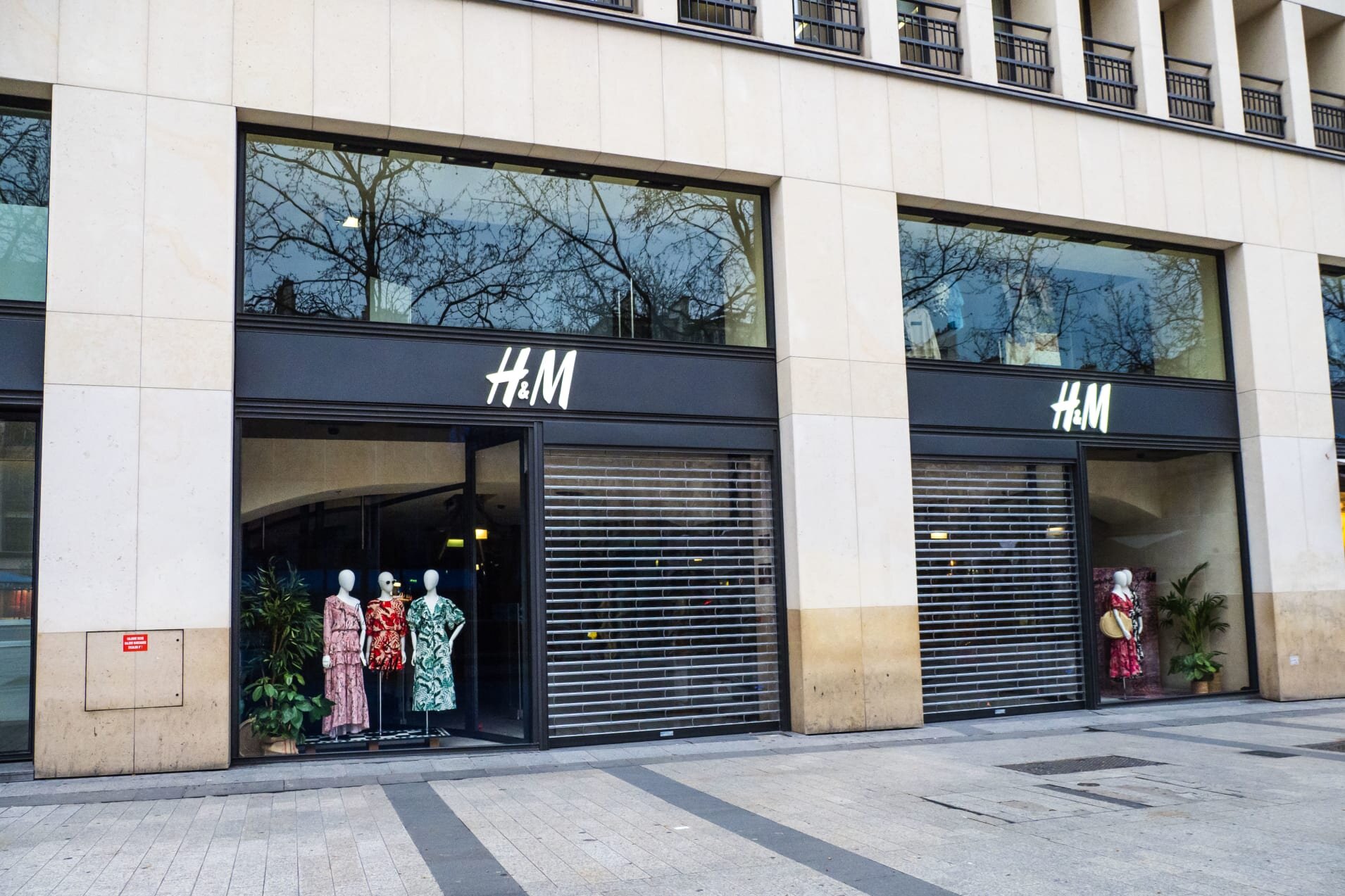COVID-19's Effects on Fast Fashion
As the coronavirus spreads, so does its impact on fast fashion.
Due to COVID-19, the trend-focused fast fashion business is in peril. It struggles to cope with supply chain issues and weak demand, as many fashion retailers are dependent on China as both a source of cheap manufacturing and a giant consumer market. According to an analysis by UBS, fast fashion’s two giants, H&M and Zara, could be especially vulnerable. The coronavirus has caused delays in the manufacturing supply chain. Margaret Bishop, an expert in apparel supply chains, states, “the timeline from design to delivery in fast fashion has been very significantly compressed, so there’s not a lot of extra time that if there’s a delay of some sort, you’ve got some margin built in.” Retailers with a high stock turnover, such as those in the fast fashion industry, are likely to be impacted sooner than those with low stock turnover.
Image via Forbes
Additionally, the COVID-19 lockdown measures implemented across the globe have altered consumers’ shopping behaviors. As people adjust to their new routine of staying at home, they seek comfort and practicality. For instance, shoppers are showing increased interest in certain items, including loungewear, lingerie, activewear, and home decor. According to Stylight, hoodies (13%), sweatpants (27%), and leggings (15%) registered a surge of clicks in the last two weeks of March.
Image via Boston Globe
With worldwide store closures, many brands are using online sales as a tactic to draw in customers. Nevertheless, revenue is plummeting at every level of the supply chain, and workers are feeling the effects. Millions of garment makers and retail workers have already lost their jobs due to the virus, often with no financial safety nets. Some brands such as ASOS and BooHoo have come under fire for the pressure they put their warehouse workers under. Many warehouse workers feel unsafe during work, claiming there is “no social distance, not enough sanitizer.”
At the same time, key players in the fashion industry have been rising to the occasion, from funding efforts to fight the virus to converting facilities to suit the needs of healthcare workers. For instance, Uniqlo has announced a donation of 10 million masks to medical institutions around the world, particularly in countries struggling with high infection rates. Fashion Nova, meanwhile, has launched a charitable initiative in partnership with Cardi B called Fashion Nova Cares. The online retailer recognizes that many are struggling to support themselves and their families. Steps it has taken to help out include selecting 24 applicants each day to distribute individual checks and giving away 1000 dollars every hour until May 20th.
Image via CNBC
This crisis can serve as a moment of reflection and transition for the industry. It could lead to fundamental changes in how and what brands sell to consumers. In fact, even before the coronavirus, more people have realized that they do not need new clothing as much, indicated by the rise in resale. Millennials and Gen Zers, in particular, increasingly enjoy thrift and consignment stores. The secondary market for fashion has grown overall as more people have become aware of fast fashion’s detrimental environmental effects and exploitation.
With COVID-19 bringing questions of industry support and reformation to the forefront, now seems like the perfect time to have a conversation about redesigning the current fast fashion model, one that will hopefully guide the industry towards new opportunities in tackling challenges of climate change, overproduction, and workers’ wellbeing.
Featured image via









